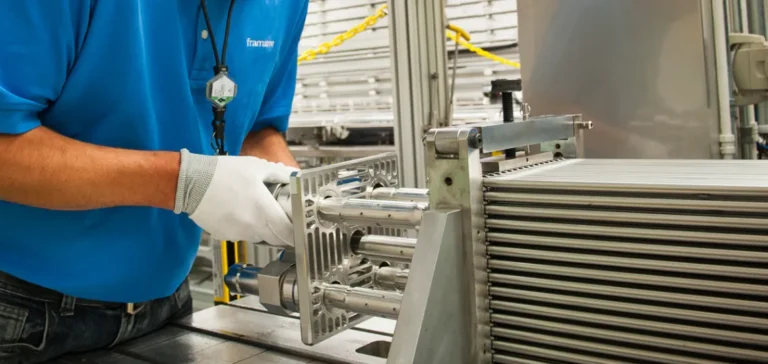French group Framatome has finalised the manufacturing of the first nuclear fuel assemblies for the Barakah nuclear power plant, located in the United Arab Emirates. These components were produced at its facility in Richland, Washington, United States, and will soon be delivered for on-site testing under the fuel qualification programme led by the operator Emirates Nuclear Energy Company (ENEC).
A strategic partnership to secure supply
Announced in July, the agreement between ENEC and Framatome includes the full supply of fuel assemblies for the four operational Korean-designed APR1400 reactors at Barakah. The contract also includes engineering services provided by Framatome’s US-based teams in Lynchburg, Virginia. This initiative is part of ENEC’s long-term strategy to diversify its fuel supply sources, aiming to strengthen national energy security.
Framatome Chief Executive Officer Grégoire Ponchon stated that reaching this milestone reflected the mutual commitment of both companies. He highlighted Framatome’s industrial capabilities and the strength of the partnership with ENEC in supporting the safe and efficient operation of the Barakah facility.
Comprehensive testing before commercial integration
Before any commercial use, the assemblies will undergo a comprehensive testing programme to validate their safety, compatibility and efficiency under real operational conditions. This process, conducted under ENEC’s supervision, will ensure compliance with applicable regulatory requirements and enhance the plant’s operational reliability.
ENEC Managing Director and Group Chief Executive Officer Mohamed Al Hammadi said that the collaboration with Framatome contributed to the resilience of the fuel supply chain. According to him, the technical quality of the manufactured assemblies will help maintain the high safety and performance standards defined for the Barakah site.
The assemblies produced by Framatome are the first of their kind to be tested on one of the four operating nuclear reactors at Barakah, which now plays a key role in low-carbon electricity generation in the Gulf region.






















